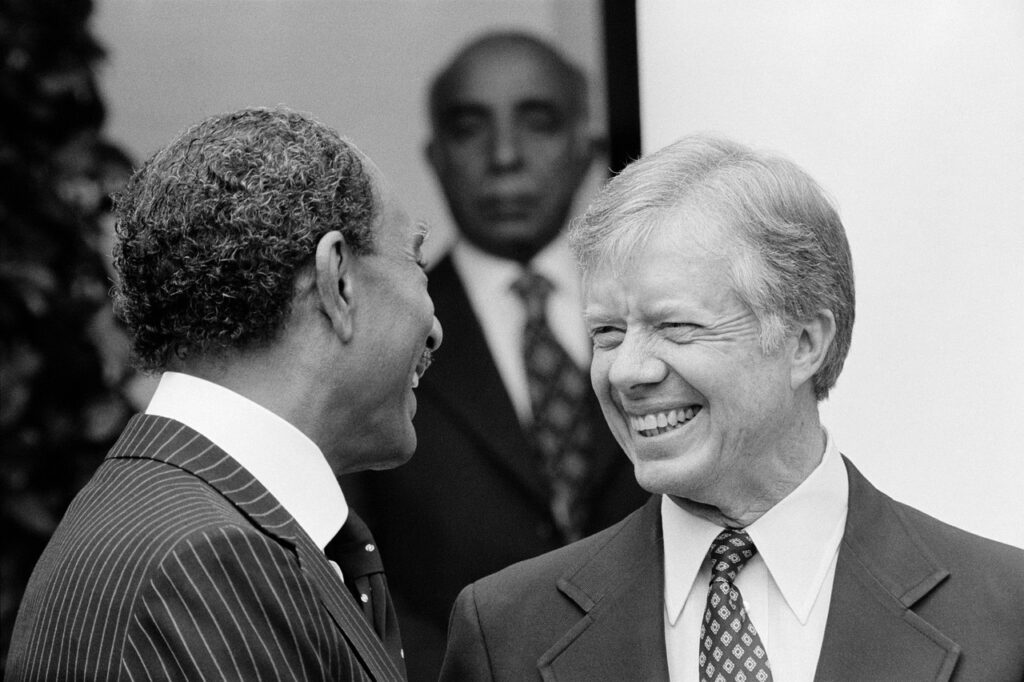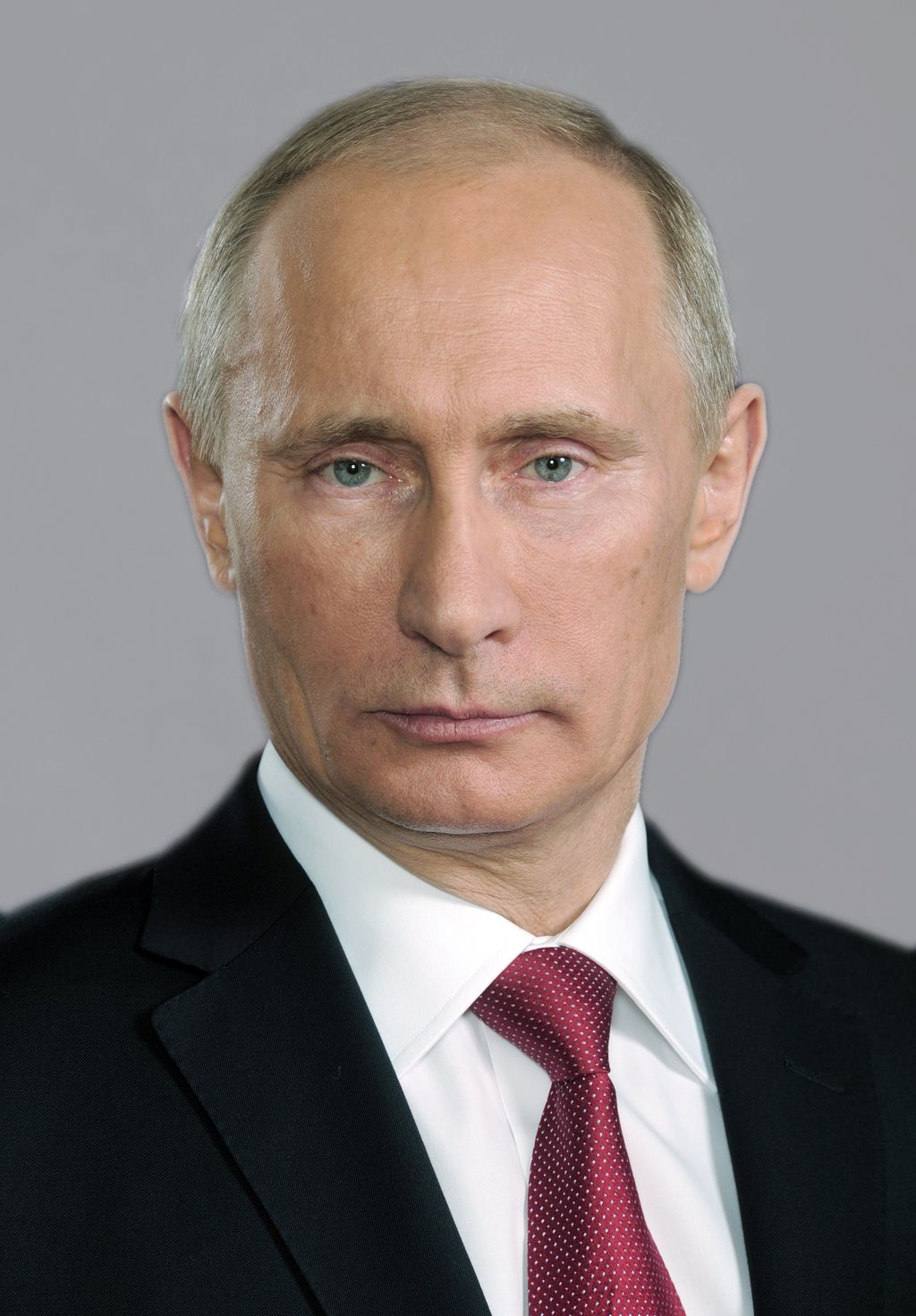
The world recently marked the passing of James Earl Carter Jr., the 39th President of the United States, at the age of 100. A figure whose life spanned a century of American history, Carter transitioned from a humble peanut farmer in Plains, Georgia, to the nation’s highest office in the tumultuous wake of the Watergate scandal and the Vietnam War. His presidency, though singular and often challenging, was followed by an unprecedented chapter of global humanitarian work that profoundly reshaped the expectations of life after the White House, earning him international acclaim and a Nobel Peace Prize. He died peacefully on Sunday, surrounded by his family at his home in Plains, Georgia, roughly 22 months after entering hospice care.
President Joe Biden, mourning Carter’s death, articulated a sentiment echoed by many: the world had lost an “extraordinary leader, statesman and humanitarian,” and he, a dear friend. Biden cited Carter’s tireless efforts to eradicate disease, forge peace, advance civil and human rights, promote free and fair elections, and house the homeless as an enduring example for future generations. Indeed, Carter’s life was a testament to purpose and meaning, rooted in an unwavering commitment to principle, faith, and humility, as President Biden reflected in his statement.
Carter’s journey — from businessman, Navy officer, and evangelist to politician, negotiator, author, and woodworker — forged a path that continues to challenge political assumptions and stands out distinctly among the 45 men who have served as president. His keen intellect, deep religious faith, and prodigious work ethic fueled a dedication to diplomatic missions into his 80s and the construction of homes for the poor well into his 90s, embodying his conviction that “My faith demands — this is not optional — my faith demands that I do whatever I can, wherever I am, whenever I can, for as long as I can, with whatever I have to try to make a difference.”

1. **From Rural Georgia to Naval Distinction: The Formative Years of James Earl Carter Jr.** James Earl Carter Jr. was born on October 1, 1924, in Plains, Georgia, spending his early years in the nearby community of Archery. His childhood unfolded in a rural setting where his family, proprietors of a land-owning farm and a main street grocery, was a minority in a predominantly Black community. This upbringing, decades before the fervor of the civil rights movement, significantly influenced his worldview, as he often spoke of the impact of his Black caregivers and playmates, while acknowledging his own advantages within the region’s tenant-farming system.
The family farm, initially focused on cotton, experienced a rapid shift towards peanut cultivation during the Great Depression, a crop that would profoundly shape Carter’s life. He would help his father tend the fields, learning the value of hard work and self-sufficiency from an early age. His 2001 memoir, “An Hour Before Daylight,” detailed the frustrations and despair in the cotton business during the Depression, contrasting it with the surging demand for peanuts that ultimately benefited his family.
Seeking to broaden his horizons beyond Plains, a town whose population remained under 1,000 then and now, Carter pursued and secured an appointment to the U.S. Naval Academy. He graduated in 1946, a pivotal year that also marked his marriage to Rosalynn Smith, another Plains native. Carter would later reflect that this decision was more significant than any he made as head of state, as Rosalynn shared his ambition to see the world and supported his burgeoning Navy career, even sacrificing her own college aspirations.
Carter climbed the ranks to lieutenant, studying nuclear science and completing submarine training, nurturing ambitions of admiralty. However, his naval career was cut short when his father received a cancer diagnosis. This compelled Carter to set aside his military aspirations and move his young family back to Plains, a decision that initially angered Rosalynn, despite her subsequent deep involvement in the family’s peanut business alongside her husband. This early experience underscored a pattern of major life decisions, which Carter later called “inconceivable” for not having consulted his wife on, though she remained his unwavering partner.

2. **A Progressive Voice in the South: Carter’s Political Ascendance in Georgia** Upon returning to Plains, Carter immersed himself in the family’s peanut farm, an endeavor where Rosalynn Smith Carter became an essential, active participant. His focus soon shifted towards public service, marking the initial steps of his political career. He first ran for office in 1962, securing a seat in the Georgia State Senate, a legislative body whose back-slapping, deal-cutting ways did not long hold his interest.
Even during his time in state politics, Carter displayed a progressive stance on racial issues, especially for a Southern leader of his era. As a Baptist deacon, he had spoken out against church segregation, and as a state senator, he opposed racist “Dixiecrats.” However, his record was not without nuance; in the 1950s, as a local school board leader, he did not actively push for an end to school segregation immediately after the Supreme Court’s Brown v. Board of Education decision, despite his private support for integration.
Carter’s ambition extended beyond the state legislature. He mounted an unsuccessful campaign for governor in 1966, losing to arch-segregationist Lester Maddox, but immediately began preparing for the next electoral cycle. In 1970, he ran for governor again, this time as a more conservative Democrat, appealing to both Black voters and culturally conservative whites, a coalition that proved successful in defeating wealthy businessman Carl Sanders. Carter disavowed anonymous, race-baiting flyers that emerged during this campaign, though Sanders never forgave him.
Once in the governor’s mansion, Carter made a resounding declaration in his 1971 inaugural address: “I say to you quite frankly that the time for racial discrimination is over.” This unequivocal statement set a new standard for Southern governors and earned him national attention, landing him on the cover of Time magazine. His gubernatorial initiatives reflected this progressive outlook, including advancements in environmental protection, boosting rural education, and overhauling antiquated executive branch structures. He also notably proclaimed Martin Luther King Jr. Day in the slain civil rights leader’s home state, cementing his image as a new kind of Southern leader.

3. **The Outsider’s Triumph: Campaigning for President in a Post-Watergate Era** It was while hosting presidential candidates in 1972 that then-Governor Carter made a pivotal observation: he concluded that these national figures possessed no more talent than he did, inspiring him to set his sights on the highest office. By 1974, he was leading the Democrats’ national campaign arm, laying the groundwork for his own audacious bid for the presidency in 1976. When he declared his candidacy, an Atlanta newspaper famously responded with the incredulous headline: “Jimmy Who?”
Carter’s campaign was a masterclass in grassroots organization and retail politics. He, along with Rosalynn and a dedicated “Peanut Brigade” of family members and Georgia supporters, strategically camped out in states like Iowa and New Hampshire, effectively establishing them as crucial presidential proving grounds. His campaign, which depended on public financing, resonated deeply with an American public weary of political deception in the aftermath of Richard Nixon’s disgrace and the U.S. defeat in Southeast Asia. His promise, “If I ever lie to you, if I ever make a misleading statement, don’t vote for me. I would not deserve to be your president,” struck a powerful chord.
A significant early endorsement came from a young first-term senator from Delaware, Joe Biden. Carter’s unique ability to navigate America’s complex racial and rural politics ultimately cemented his Democratic nomination. He went on to sweep the Deep South in the November general election, a feat that no Democrat has achieved since, as many white Southerners were beginning their shift towards the Republican Party in response to civil rights initiatives. He narrowly defeated Republican incumbent Gerald Ford, who had lost popularity following his pardon of Nixon.
As a self-declared “born-again Christian,” Carter’s candor occasionally generated controversy, as exemplified by his Playboy magazine interview where he admitted to having “looked on many women with lust. I’ve committed adultery in my heart many times.” While these remarks provided fodder for television comedians and gave Ford a brief advantage, many voters, yearning for authenticity and weary of cynicism in politics, found his honesty endearing. He chose Minnesota Senator Walter “Fritz” Mondale as his running mate, forming a memorable “Grits and Fritz” ticket. His presidency also notably elevated the stature of both the vice presidency and the first lady’s office, with Rosalynn Carter becoming one of the most involved presidential spouses in history, welcomed into Cabinet meetings and legislative huddles.
4. **A Presidency of Principle: Human Rights and Structural Reforms in the White House** Upon entering the White House, Jimmy Carter sought to govern with an uncommon informality, signaling a departure from traditional Washington pomp. He utilized his nickname “Jimmy” even during his oath of office, carried his own luggage, and attempted to quiet the Marine Band’s rendition of “Hail to the Chief.” The Carters opted for off-the-rack clothing, and Amy, their youngest child, attended a District of Columbia public school. His decision to wear a cardigan for a White House address, urging Americans to conserve energy, became an enduring image of his populist approach.
Washington’s social and media elite often scorned this unconventional style, but a more significant challenge was Carter’s perceived “inherent incompatibility” with Washington insiders. He acknowledged in his 2020 “White House Diary” that he could be “micromanaging” and “excessively autocratic,” which complicated his dealings with Congress and the federal bureaucracy. His struggle to fully appreciate the influence of the news media and lobbyists on his political fortunes further isolated him, leaving him nowhere to turn politically once economic turmoil and foreign policy challenges mounted.
Despite these internal struggles, Carter’s presidency was deeply anchored in principle, particularly his unwavering commitment to human rights. He centered human rights in his foreign policy, actively pressuring dictatorships to release thousands of political prisoners and openly acknowledging America’s historical imperialism. His administration pardoned Vietnam War draft evaders, relinquished control of the Panama Canal, and normalized diplomatic relations with China. He consistently articulated his primary objectives: to “protect our nation’s security and interests peacefully” and to “enhance human rights here and abroad,” even if a second term eluded him.
Domestically, Carter’s administration implemented significant structural reforms and made notable appointments. He partially deregulated the airline, railroad, and trucking industries, and established three key federal entities: the departments of Education and Energy, and the Federal Emergency Management Agency (FEMA). He designated millions of acres of Alaska as national parks or wildlife refuges, demonstrating a strong commitment to environmental protection. Furthermore, he appointed a then-record number of women and nonwhite individuals to federal posts, and although he never had a Supreme Court nomination, he elevated civil rights attorney Ruth Bader Ginsburg to the nation’s second-highest court, positioning her for a future promotion.
5. **Brokering Peace: The Historic Camp David Accords and Middle East Diplomacy** Among the most acclaimed achievements of Jimmy Carter’s presidency was his remarkable success in brokering a Mideast peace deal in 1978, known as the Camp David Accords. This diplomatic triumph brought together two historic adversaries, Egyptian President Anwar Sadat and Israeli Prime Minister Menachem Begin, for an intense 13-day negotiation at the presidential retreat in Maryland. Carter’s personal commitment and tireless engagement were instrumental in overcoming deep-seated antagonisms and reaching an unprecedented agreement.
The negotiations were arduous, marked by moments of near collapse, yet Carter’s steadfast resolve kept the two leaders at the bargaining table. His ability to build trust and find common ground between Sadat and Begin ultimately led to a framework for peace that reshaped the geopolitical landscape of the Middle East. This achievement demonstrated Carter’s profound capacity for direct, persistent diplomacy, highlighting his belief in peaceful solutions to international conflicts.
At the signing of the peace treaty on March 26, 1979, Carter articulated the monumental significance of the moment, declaring, “Let history record that deep and ancient antagonism can be settled without bloodshed and without a staggering waste of precious lives.” The Camp David Accords not only earned Sadat and Begin a shared Nobel Peace Prize but also served as a powerful testament to Carter’s vision and leadership on the global stage. This success in bridging seemingly insurmountable divides reinforced his commitment to human rights and international cooperation.
Beyond its immediate impact, the Camp David experience profoundly inspired Carter’s vision for his post-presidency. He recognized the potential for a dedicated institution to continue such vital work, a realization that would later lead to the establishment of The Carter Center. This landmark peace deal, therefore, was not merely a singular presidential triumph but a foundational moment for his subsequent humanitarian endeavors, demonstrating how a determined leader could achieve peace where others had failed, and setting a precedent for future global engagement.

6. **Navigating the Tempest: Economic Hardship and Foreign Policy Challenges During Carter’s Term**
Jimmy Carter’s presidency, spanning from 1977 to 1981, unfolded against a backdrop of significant domestic and international turbulence. He inherited an economy grappling with persistent inflation and was confronted with volatile oil markets and a society undergoing profound upheaval over issues of racism, women’s rights, and America’s role on the global stage. His administration struggled to tame double-digit inflation and address the widespread gasoline lines that became a palpable symbol of the nation’s energy crisis, which remained critical throughout his term.
Despite these economic headwinds, Carter’s administration pushed through several notable reforms and created new governmental structures. He partially deregulated key industries such as airlines, railroads, and trucking, aiming to spur competition and efficiency. Furthermore, he established the departments of Energy and Education, underscoring his focus on critical national sectors, and founded the Federal Emergency Management Agency (FEMA) to enhance disaster preparedness and response. These efforts aimed at modernizing the federal bureaucracy and addressing pressing national needs, even as economic woes continued to dog his popularity.
In foreign policy, the Cold War pressures loomed large. Carter pursued a new strategic arms treaty with the Soviet Union, known as SALT II, which he signed with Leonid Brezhnev. However, the international climate dramatically shifted when the Soviets invaded Afghanistan in 1979, prompting Carter to withdraw the treaty from Senate consideration, impose trade sanctions, and order a U.S. boycott of the Moscow Olympics. These actions signaled a more robust stance against Soviet aggression, yet they also highlighted the complexities and frustrations of superpower diplomacy during his tenure.
Perhaps one of the most defining moments of his presidency in terms of public perception was his address to the nation, which the media quickly dubbed his “malaise” speech, even though he never used that specific word. In it, Carter declared that the nation was suffering from “a crisis of confidence,” an attempt to instill optimism and rally the American people. However, by that point, many Americans had unfortunately lost confidence not in themselves, but in their president, contributing to a sense of national pessimism and further eroding his political standing. This perception, coupled with ongoing economic difficulties, created a challenging environment for a president who, according to close aides, “hated politics,” leaving him with limited political leverage when crises compounded.

7. **The Hostage Crisis: A Defining Ordeal for the Carter Presidency**The latter half of Jimmy Carter’s presidency was indelibly marked by the Iran hostage crisis, an ordeal that began in November 1979 and profoundly shaped public perception and his political fortunes. Following his controversial decision to admit the exiled Shah of Iran to the U.S. for medical treatment, the American Embassy in Tehran was overrun by followers of the Ayatollah Ruhollah Khomeini, leading to the capture of 52 American citizens. This unprecedented situation cast a long shadow over the administration, consuming national attention and diplomatic efforts for over a year.
Negotiations for the hostages’ freedom proved repeatedly futile, escalating tensions and frustrating a nation yearning for resolution. The crisis reached its bleakest hour in April 1980, when a U.S. military attempt to rescue the hostages ended in disaster, resulting in the deaths of eight American servicemen. This failed mission compounded the sense of national helplessness and further eroded public confidence, becoming a critical factor that dominated Carter’s reelection campaign and underscored the formidable challenges he faced.
The prolonged hostage crisis, alongside persistent economic struggles and inflation that topped 18%, created an insurmountable hurdle for Carter’s bid for a second term. In a final, bitter turn of events, the hostages were not released until hours after Carter left office, a poignant and symbolic conclusion to a crisis that had largely defined his presidency and contributed significantly to his electoral defeat.

8. **From White House to Humanitarian: The Birth of The Carter Center**Following his tumultuous single term, Jimmy Carter faced a landslide defeat to Republican Ronald Reagan, who skillfully capitalized on national weariness with economic austerity and a pervasive sense of malaise. Reagan’s campaign resonated with appeals to “make America great again,” directly challenging voters with the question of whether they were “better off than you were four years ago,” leading to Carter losing all but six states and a significant shift in the Senate. At the age of 56, Carter returned to his home in Plains, Georgia, admitting that he had “no idea what I would do with the rest of my life” after such a comprehensive rejection at the polls.
Yet, this ignominious defeat inadvertently opened a new, extraordinary chapter for Carter. Refusing to simply fade into retirement, he and Rosalynn founded The Carter Center in 1982, establishing it as a first-of-its-kind base of operations for a former president. This bold initiative moved beyond the traditional role of merely housing presidential records and memorabilia, reflecting Carter’s conviction that he “wanted a place where we could work.” The Center quickly asserted itself as a formidable force on the international stage, fundamentally redefining the expectations and potential scope of a former president’s post-White House life.
The establishment of The Carter Center marked a pivot from the immediate pressures of domestic politics to a dedicated pursuit of global humanitarianism. It became a powerful vehicle for Carter’s unwavering commitment to peace, human rights, and democracy, allowing him to operate with a degree of independence and moral authority that was often constrained during his presidency. This new platform enabled him to channel his deep faith and prodigious work ethic into tangible actions, initiating a legacy that would ultimately overshadow the complexities of his time in the Oval Office.

9. **A Global Champion: Advancing Peace, Health, and Human Rights Worldwide**Unencumbered by the intricate demands of Washington politics, Jimmy Carter leveraged The Carter Center to become an unparalleled force for international good, asserting himself and Rosalynn as relentless champions of democracy, public health, and human rights. His work extended far beyond conventional diplomacy, often leading him to “where others are not treading,” into regions fraught with conflict and disease. This proactive approach allowed him to engage in high-stakes negotiations and direct interventions that profoundly impacted global stability and human well-being.
The Center’s extensive global humanitarian efforts included critical interventions such as easing nuclear tensions between North and South Korea, helping to avert a potential U.S. invasion of Haiti, and negotiating cease-fires in deeply entrenched conflicts in Bosnia and Sudan. These diplomatic endeavors, often conducted quietly and persistently, showcased Carter’s unique ability to build trust and bridge divides where official government channels might have struggled. By 2022, The Carter Center had meticulously monitored and declared at least 113 elections across Latin America, Asia, and Africa as either free or fraudulent, later extending its scrutiny to U.S. elections, underscoring its commitment to democratic integrity worldwide.
Among his most ambitious and celebrated public health initiatives was Carter’s personal vow to eradicate the guinea worm parasite during his lifetime. This dedicated campaign saw cases plummet from millions in the 1980s to merely a handful, a testament to his sustained focus and the Center’s robust programs. Beyond global health, the Carters were also tireless advocates for housing the poor, famously donning hardhats and wielding hammers to build homes with Habitat for Humanity well into their 90s, embodying his conviction to “make a difference” through direct, selfless service.
10. **The Nobel Peace Prize: International Recognition for a Life of Service**Jimmy Carter’s profound and sustained contributions to global peace and human rights were formally recognized in 2002 when he was awarded the Nobel Peace Prize. The Nobel committee specifically cited his “untiring effort to find peaceful solutions to international conflicts, to advance democracy and human rights, and to promote economic and social development.” This prestigious accolade served as a powerful validation of his post-presidential work, solidifying his stature as a humanitarian statesman of unparalleled dedication and influence.
The recognition was particularly poignant, as the chairman of the Nobel committee noted that Carter “should have won it alongside Sadat and Begin in 1978” for his role in brokering the Camp David Accords. This sentiment underscored the long-term impact of his initial diplomatic triumph and the consistent thread of peace-building that ran through both his presidency and his subsequent humanitarian endeavors. The prize highlighted how Carter’s unwavering commitment to peaceful resolutions had remained a constant throughout his public life.
Upon accepting the Nobel Peace Prize, Carter humbly acknowledged that there was “more work to be done,” reflecting his perpetual drive for progress. He observed that “the world is now, in many ways, a more dangerous place,” and lamented that “the greater ease of travel and communication has not been matched by equal understanding and mutual respect.” His acceptance speech underscored his continued concern for global challenges and his belief that persistent effort was required to foster a more harmonious and equitable world, cementing his legacy not just as a diplomat but as a moral compass.
11. **An Enduring Partnership: Jimmy and Rosalynn Carter’s Unbreakable Bond**At the heart of Jimmy Carter’s extraordinary life and enduring legacy was his remarkable and enduring partnership with Rosalynn Smith Carter, whom he married in 1946. This union, which he considered “more important than any he made as head of state,” was a foundation of unwavering support and shared ambition. Rosalynn, sacrificing her own college aspirations, fully embraced his desire to “see the world” and supported his burgeoning Navy career, becoming an active participant in every facet of his life, from the family peanut business to his political campaigns.
Rosalynn Carter’s involvement extended far beyond traditional spousal duties, setting a new standard for the role of a presidential spouse. She became one of the “most involved presidential spouses in history,” routinely welcomed into Cabinet meetings and legislative huddles. Her keen political acumen and steadfast dedication were openly acknowledged by Jimmy Carter himself, who remarked, “My wife is much more political,” highlighting her significant influence and active participation in his public service journey.
Their bond proved to be a testament to longevity and mutual devotion, as they celebrated their 77th wedding anniversary, becoming the longest-married presidential couple in American history. Rosalynn’s passing in November 2023 at the age of 96 marked a profound personal loss for Jimmy Carter, a sentiment captured by their grandson Jason Carter, who spoke movingly of their unique and unbreakable love story. Their partnership, characterized by shared purpose and profound affection, inspired generations and served as a powerful example of enduring commitment.
_(LOC).jpg)
12. **Reassessing a Singular Legacy: The Longest-Lived U.S. President**In his later years, Jimmy Carter lived long enough to witness a comprehensive reassessment of his unique legacy, evolving from early perceptions that often deemed him a “better ex-president than president.” This common assessment, which initially “rankled Carter and his allies,” gradually gave way to a more generous historical perspective. His prolific and impactful post-presidency, which cultivated a brand “above politics,” particularly resonated with younger Americans who had not witnessed his White House years directly.
Biographers and historians, over time, began to view his presidential tenure more favorably, recognizing accomplishments that were not immediately apparent during his tumultuous single term. Stuart Eizenstat, Carter’s domestic policy director, acknowledged in a 2018 book that while Carter “was not a great president,” he was unequivocally “good and productive” and “delivered results, many of which were realized only after he left office.” This nuanced view countered the “hapless and weak” caricature that had contributed to his 1980 electoral rejection.
Madeleine Albright, who served on Carter’s national security staff, further affirmed that Carter was “consequential and successful,” expressing hope that “perceptions will continue to evolve” regarding his presidency. Similarly, comprehensive biographer Jonathan Alter lauded Carter for “an epic American life,” predicting he would “likely go down as one of the most misunderstood and underestimated figures in American history.” These re-evaluations collectively painted a picture of a president whose principles and long-term vision ultimately bore fruit.
Carter’s death at 100, following approximately 22 months in hospice care at his home in Plains, Georgia, marked the passing of the longest-lived American president. His life, spanning a century of immense change, from a home without electricity or indoor plumbing to the global stage, underscores a legacy of continuous service. Until mobility declined and the pandemic raged, he regularly taught Sunday School at Maranatha Baptist Church, drawing visitors from around the world to the small sanctuary where he will receive his final send-off, cementing his unique place in history as a leader whose influence transcended his time in office.
Jimmy Carter’s journey, a testament to unwavering principle and relentless service, offers a profound narrative of American leadership. From the quiet fields of Plains to the global stage, his life demonstrated a continuous commitment to peace, human rights, and the betterment of humanity. He not only served as president but also redefined what it meant to be a former president, leaving an indelible mark that will continue to inspire generations with his steadfast faith, humility, and extraordinary dedication to making a difference.








